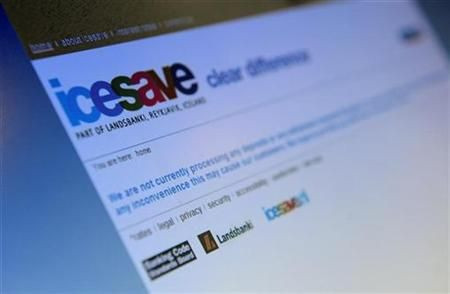Iceland president demands referendum on new Icesave repayment deal

The president of Iceland has called for a referendum on a proposal to repay 4-billion euros to citizens of Britain and the Netherlands in connection with the collapse of the Icesave bank.
President Olafur Grimsson said the new plan, which has already been approved by an overwhelming majority in parliament, remains subject to public approval.
The citizens of Iceland will get to vote on these new Icesave contracts, Grimsson told reporters in Reykjavik. These [Icesave] contracts are different from the last ones that were put to the nation. It is important that the nation again will get its say.”
This marks the second time in little more than a year that Grimmson has vetoed a repayment deal and requested a referendum.
Under the current deal, Iceland will have more time to repay and at a lower interest rate.
Iceland will pay the money back to British depositors at a 3.3 percent interest rate between 2016 and 2046, versus the 5.5 percent interest rate between 2016 and 2024 (as envisioned in the prior deal).
The previous repayment deal was rejected by an overwhelming 93.2 percent of Iceland’s votes last March.
Prime Minister Johanna Sigurdardottir described the president’s latest decision as disappointing.
We had anticipated that the president would sign the Icesave bill,” she said. This bill got a majority in parliament and it is not common that the president rejects a bill with such a majority. I don't think there is a big chance that Britain and the Netherlands would be willing to sit down and negotiate again,
When Icesave’s parent bank, Landsbanki, collapsed in the final months of 2008, an estimated 400,000 British and Dutch depositors lost their savings.
The Icelandic government has said that it will raise much of the repayment money by selling off assets of Landsbanki. Consequently, the final cost to the Reykjavik will be significantly less than the 4-billion euros owed.
© Copyright IBTimes 2025. All rights reserved.




















